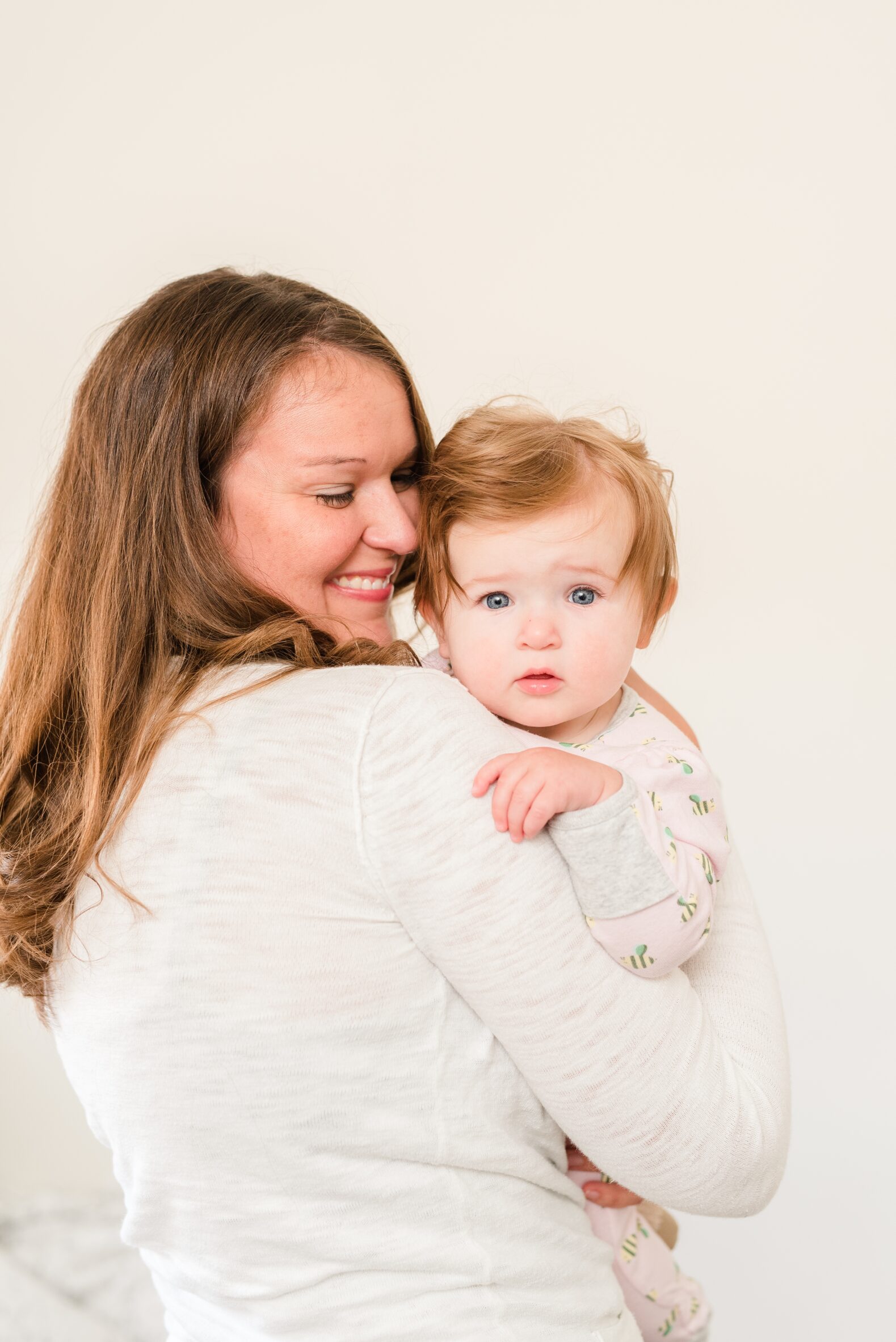Every baby is different. You have probably heard this many times. Temperament can have a lot to do with how well a baby sleeps. Looking back at my children, I could have told you what kind of sleeper they were going to be on DAY ONE of each of their lives.
My sensitive, high needs first daughter cried so loud and so much on her first day that I went ahead and tried a pacifier (even though I said I wouldn’t) out of fear she would wake our neighbors in the hospital. My husband and I decided when she was just a few months old that we wouldn’t be having any more children. And we were serious. We just did not know how we would handle that much crying and the lack of sleep again. She was a highly alert baby. I would say about 75% of the babies I work with fall into this category. You know the ones. I commonly hear things like “he has never slept well”, “she naps for 30 minutes on the dot”, “he has FOMO”, etc.
My husband and I ended up deciding to have more children and thankfully my easy-going 2nd and 3rd babies slept a lot, even unswaddled and naked under their bilirubin lights in the hospital. It didn’t phase them when people came in and out of the room or there were loud noises. So yes, looking back I could have told you what kind of sleepers they were going to be from the very beginning.
What is temperament?
A baby’s temperament is how she responds to the world around her. She might be happy, quiet, easy-going or apprehensive. She might be reluctant to change, or she might be shy about meeting new people. These are all possible elements of a child’s temperament, which parents can immediately recognize even from those early newborn days.
There’s no right or wrong temperament, just differences. Of course, we would all choose an easy-going temperament if we had a choice. But we don’t get a choice. They are born this way. And sometimes we need to grieve a little if we have a baby who is more challenging than what we might have been hoping for. However, by trying to understand our baby we may be more patient to her unique needs. It is so important to take your baby’s temperament into account when trying to navigate those early sleepless days and nights. Some babies will sleep well from the beginning and some will not. Some newborns may seem to sleep anywhere and others may need to be held a lot. This does not always mean you are doing something wrong or that there is something wrong with your baby. It can simply be a difference in temperament.
Even with twins, one will often sleep better than the other. They have a very similar genetic makeup and yet they do not sleep the same. Again, this is often temperament-based. I know it’s hard but try not to compare your baby and your journey to others. Please do what you have to do to help your baby feel secure in the world.
Sleep tips for challenging temperament types:
For Babies
- Watch Windows of Wakefulness– these babies are often really good at hiding their sleepy cues and then parents don’t notice they are tired until it’s too late (guilty!) Since their cues can be invisible, don’t wait for the cues! You want to avoid “the second wind” so it is so important baby doesn’t get overtired. It is really important to know how long your baby should be awake at each age and to stick to those windows for these type of children.
- Transition Time– Give wind down/ transition time even for naps. Turn down the lights, talk more softly, etc.
- Sensory Sensitivity– Make sure your baby doesn’t get overstimulated. Some babies are more aware of sights, sounds, smells, touch, etc. and if your baby is more sensitive she might have a stronger reaction to these things. Try to remove anything that seems to overstimulate your baby.
For 2 year olds+
- Special Time– Spend 15-20 minutes every day focusing on your child without any distractions. Let them be the boss of what you do/play during that time.
- “Heavy work”– These activities can really help active children downshift. (Google “heavy work” for all kinds of activity ideas.)
- Routines and limits– these need to be pretty strict for more challenging temperament types.
I always take a child’s temperament into account when I am creating their personalized sleep plan to discuss in a consultation.

